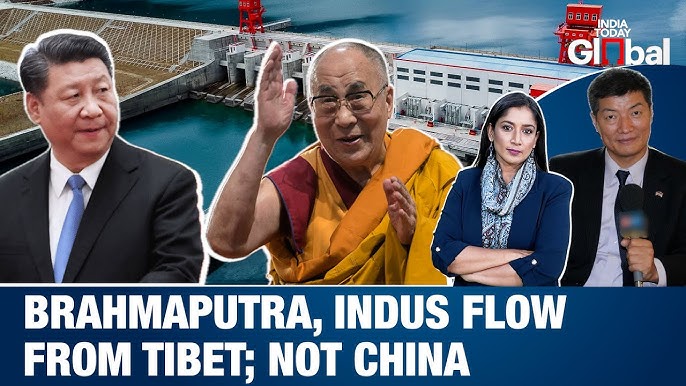Tibetan Leader Warns India of China's Influence Tactics
Tibetan exile leader Lobsang Sangay has warned Indian officials and the public about China's escalating influence tactics targeting political, business, and media elites across South Asia.

Tibetan Leader Raises Alarm Over Chinese Influence
Lobsang Sangay, former president of the Tibetan government-in-exile, has issued a stark warning to India regarding China's expanding efforts to sway the country's political and business elites. In recent interviews with NDTV and other Indian media, Sangay alleged that the Chinese embassy in New Delhi is actively seeking to co-opt Indian leaders, intellectuals, journalists, and even social media influencers through a strategy he described as "elite capture." According to Sangay, similar tactics were previously deployed by Beijing in Tibet, Xinjiang, and Mongolia, and are now being replicated in India.
Sangay pointed to the attendance of Indian politicians and entrepreneurs at Chinese National Day receptions as evidence of Beijing's attempts to foster influence. He cautioned that these efforts are not limited to India, noting that in Europe, some ministers who publicly praised China later secured lucrative positions in Chinese companies, sometimes earning salaries exceeding $800,000 annually, as reported by The Daily Jagran and NDTV.
Regional Impact and Economic Leverage
Sangay emphasized that China's influence campaigns extend throughout South Asia, citing examples in Nepal, Sri Lanka, Bangladesh, and the Maldives, where Beijing has cultivated close relationships with ruling elites. He argued that this strategy is part of a broader geopolitical effort to constrain India and dominate the region. Sangay also highlighted India's significant trade deficit with China, stating that India imports $113 billion worth of Chinese goods while exporting only $14 billion, a disparity he described as a strategic weakness that undermines domestic manufacturing and employment.
Calls for Vigilance and Cross-Checking Official Narratives
The Tibetan leader urged Indian politicians, entrepreneurs, and journalists to remain vigilant against Beijing's expanding influence, warning that China is indifferent to which party holds power as long as its interests are served. Sangay criticized the notion, once popular in Western policy circles, that increased trade with China would lead to its democratization, arguing that the opposite has occurred and cautioning India not to repeat what he called a "dangerous" mistake.
Independent analysts and scholars, such as Professor Jabin Jacob of Shiv Nadar University, have corroborated concerns about China's growing presence in South Asia, noting that Beijing has begun to intervene more confidently in the domestic politics of neighboring countries. Jacob observed that China's engagement now reaches beyond traditional elites to broader segments of society, further solidifying its regional influence.
Contradictions and Propaganda Concerns
While Chinese officials routinely deny allegations of interference and portray their outreach as benign, Sangay's warnings and independent expert assessments highlight a pattern of influence operations that raise questions about the transparency and intent of Beijing's actions. No direct evidence has emerged from Chinese government sources to refute Sangay's claims, and official statements often frame criticism as politically motivated, according to reporting from NDTV and The Daily Jagran. Journalists and analysts continue to call for greater scrutiny and cross-checking of official narratives to ensure an accurate understanding of China's tactics in India and the wider region.
Sources
-
The Daily Jagran
'Beijing's Game Is Elite Capture': Tibetan Exile L...
-
The China-Global South Pr...
China-India Relations Remain Fragile Despite Warmi...
-
ndtv.com
Tibet Leader Warns India Of China's "Elite Capture...
-
business-standard.com
Chinese government - Business Standard
-
ndtv.com
China Buys Politicians, Journalists”: Dr. Lobsang...
-
The Tribune
China seeks to move beyond ostentation to dominati...
-
moneycontrol.com
Tibeten leader warns India against China's 'elite...
-
Central Tibetan Administr...
Central Tibetan Administration – Restoring Freedom...
-
ndtv.com
Tibetan Leader Lobsang Sangay Warns India Of China...
-
The Star
China detains student for Tibet activism, rights g...